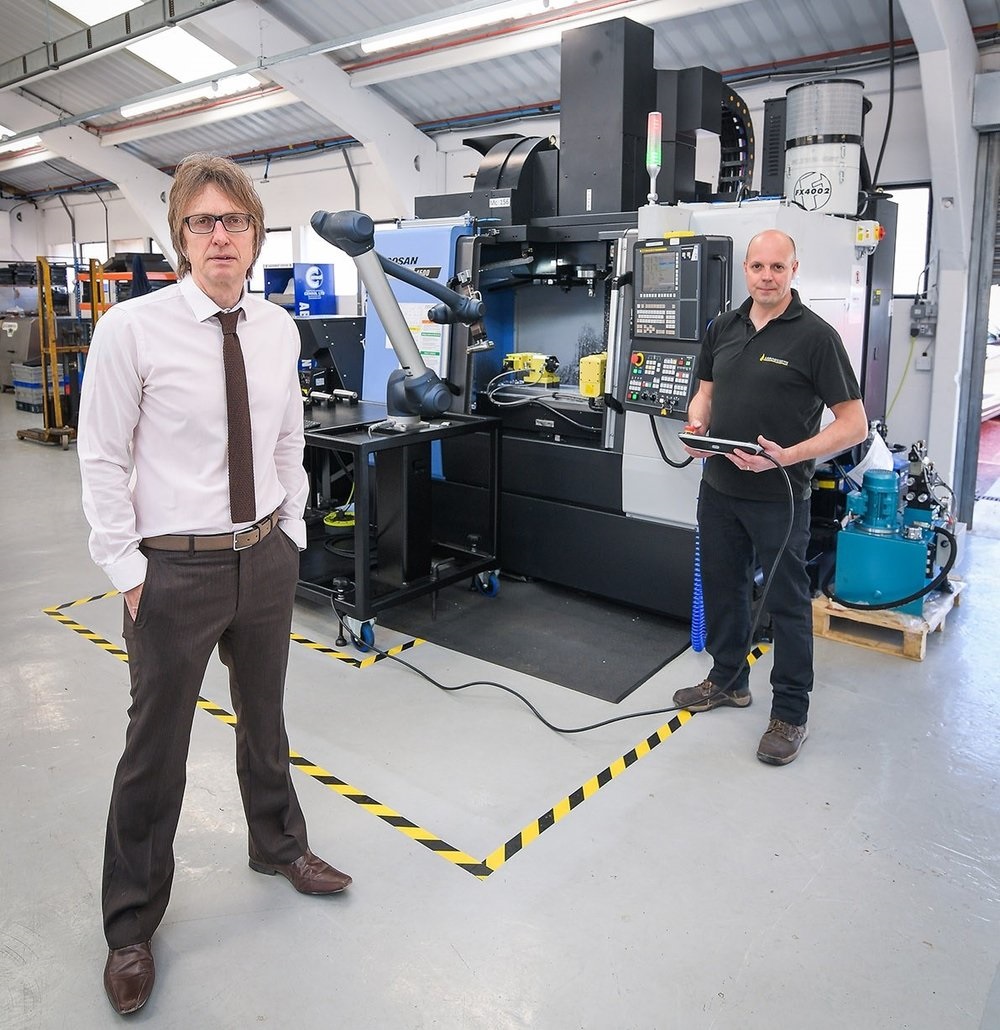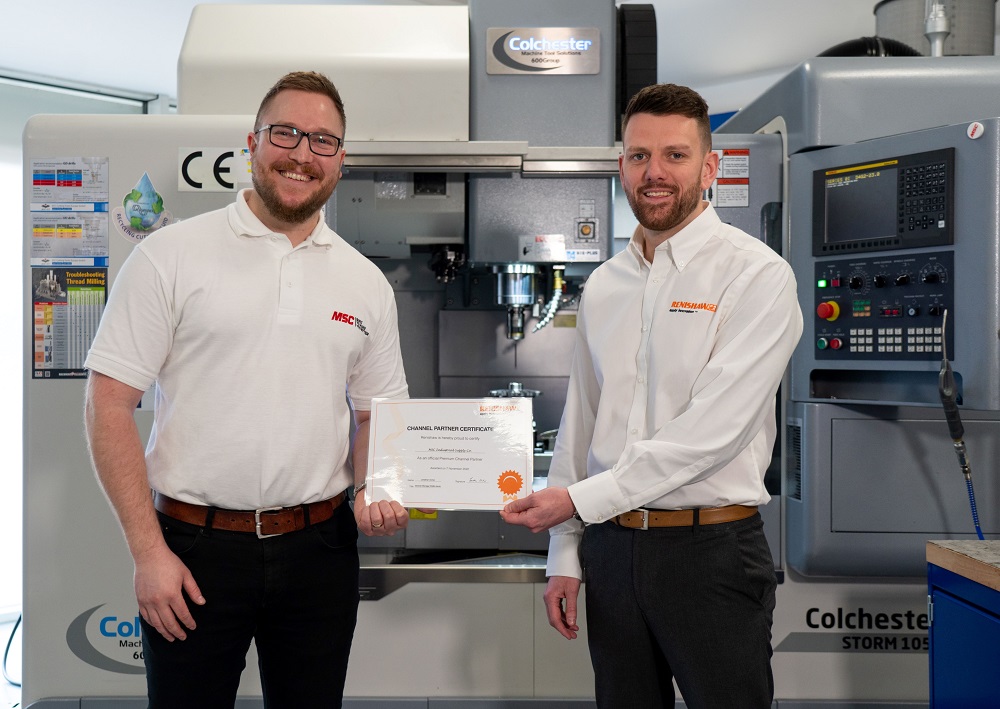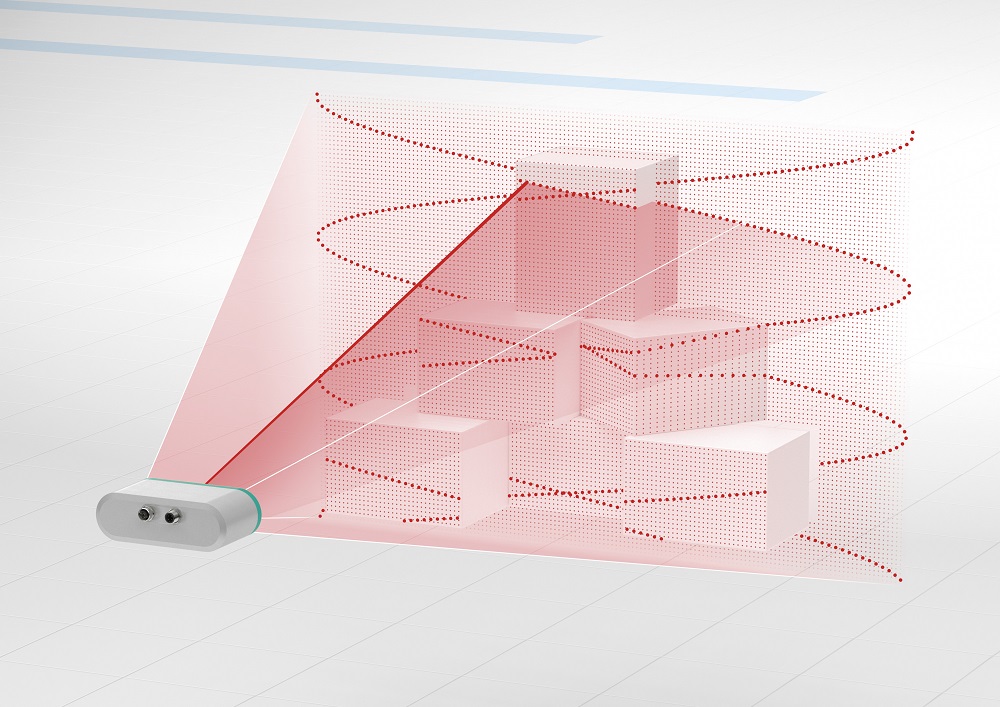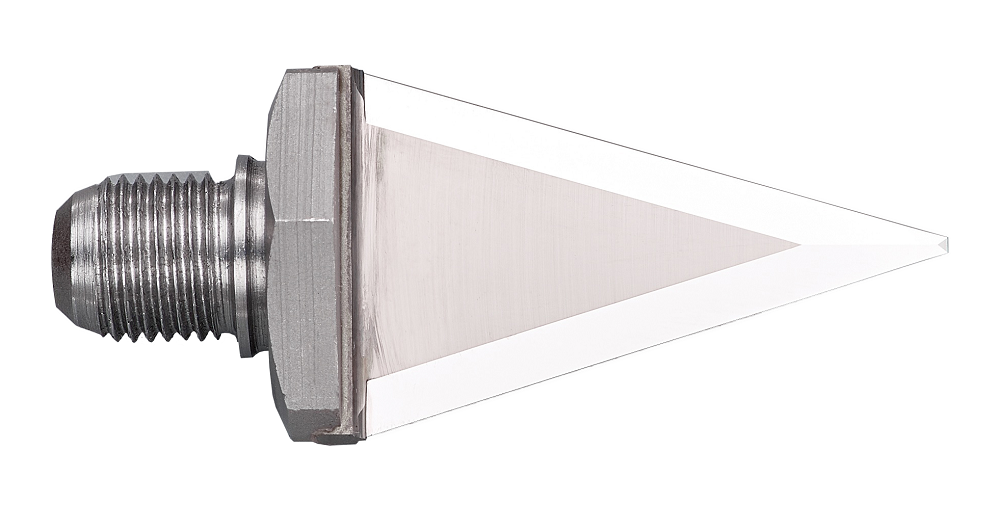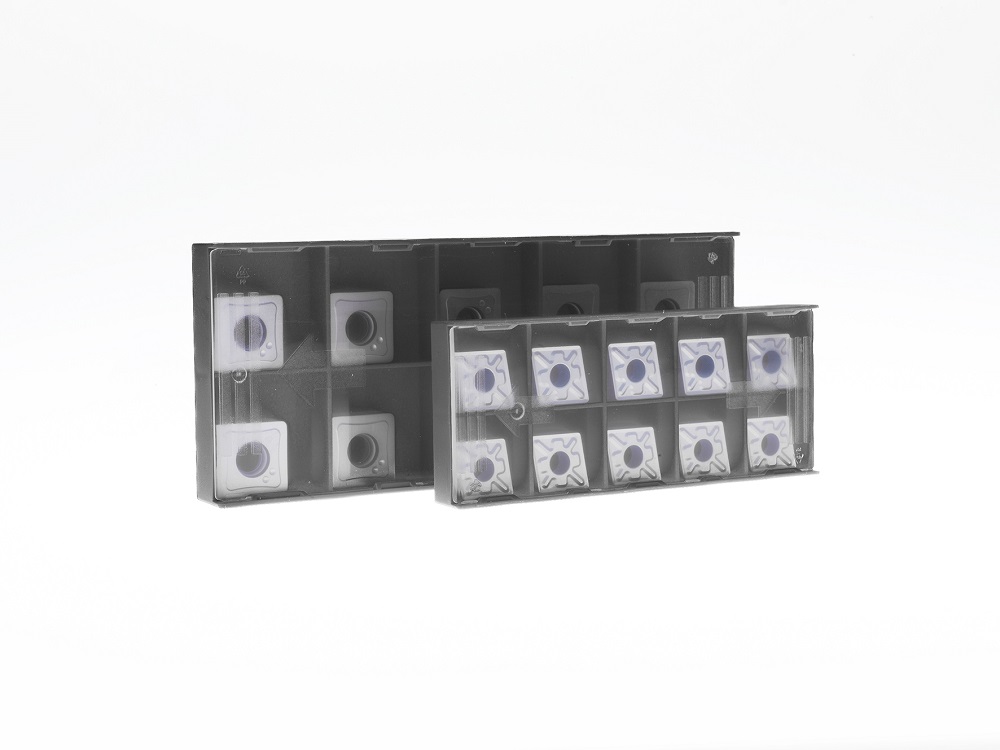A technological innovation from Pepperl+Fuchs in co-operation with the Fraunhofer Institute for Silicon Technology ISIT enables maximum precision and performance, while remaining highly cost-efficient. For the first time, high-performance distance measurement technology is combined with MEMS technology, forming the basis for the R3000 3-D LiDAR/MEMS sensor.
The 3D measurement is based on Pulse Ranging Technology (PRT), a distance measurement method developed by Pepperl+Fuchs that can be scaled to meet a wide range of requirements. Based on over 250,000 emitted laser pulses per second, it measures distances from a few centimetres to several hundred metres with millimetre accuracy. Ambient light and other environmental influences are effectively suppressed, helping PRT to deliver fast, precise and reliable measurement results.
To reach the third dimension, Pepperl+Fuchs combines PRT with a micro-electro-mechanical system from Fraunhofer ISIT for the first time as part of the R3000 product study: a small, economical, and mechanically robust MEMS mirror is integrated into the sensor. Through the motion of the piezoelectrically driven element, the emitted laser beam deflects in two axes by 40° x 30°. Unlike conventional 3D sensors, no pixel grid is created during the process of measurement. Instead, the R3000 uses a particularly small light spot and seamless scanning to produce ultra-high resolution 3D point clouds with exceptional detail.
To make communication between man and machine as simple as possible, the R3000 is equipped with additional functions. The sensor not only generates a 3D point cloud, but also a superimposed intensity image that can visualise the scene and therefore facilitate programming and operation. In addition, each measurement point can be displayed with a visible laser beam. The synchronous laser projector allows the R3000 to be precisely aligned and adjusted without additional tools, ensuring easy commissioning.
For further information www.pepperl-fuchs.com






